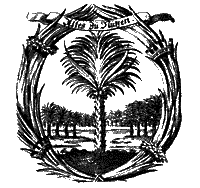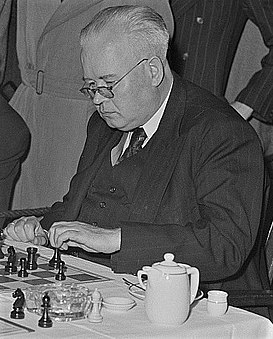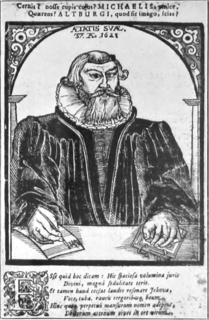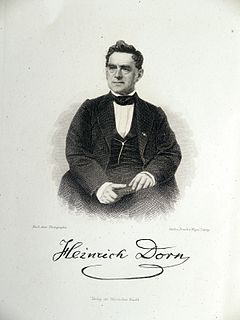Related Research Articles

Gustav Ludwig Heinrich Mützel was a German artist, famous for his mammal and bird paintings, including the illustrations for the second edition of Alfred Edmund Brehm's Thierleben and Richard Lydekker's The Royal Natural History.

The Fruitbearing Society was a German literary society founded in 1617 in Weimar by German scholars and nobility. Its aim was to standardize vernacular German and promote it as both a scholarly and literary language, after the pattern of the Accademia della Crusca in Florence and similar groups already thriving in Italy, followed in later years also in France (1635) and Britain.

The Sing-Akademie zu Berlin, also known as the Berliner Singakademie, is a musical society founded in Berlin in 1791 by Carl Friedrich Christian Fasch, harpsichordist to the court of Prussia, on the model of the 18th-century London Academy of Ancient Music.

Friedrich Heinrich Adolf Bernhard Marx [A. B. Marx] was a German music theorist, critic, and musicologist.

Ludwig Rellstab was a German chess player who won the German Chess Championship in 1942 and was awarded the International Master title in 1950.
Since the 18th century Berlin has been an influential musical center in Germany and Europe. First as an important trading city in the Hanseatic League, then as the capital of the electorate of Brandenburg and the Prussian Kingdom, later on as one of the biggest cities in Germany it fostered an influential music culture that remains vital until today. Berlin can be regarded as the breeding ground for the powerful choir movement that played such an important role in the broad socialization of music in Germany during the 19th century.

Bernhard Joseph Klein was a German composer.

A men's chorus or male voice choir (MVC), is a choir consisting of men who sing with either a tenor or bass voice, and whose music is typically arranged into high and low tenors, and high and low basses —and shortened to the letters TTBB. The term can also refer to a piece of music which is performed by such a choir.

Michael Altenburg was a German theologian and composer.

Heinrich Ludwig Egmont Dorn was a German conductor, composer, teacher, and journalist. He was born in Königsberg, where he studied piano, singing, and composition. Later, he studied in Berlin with Ludwig Berger, Bernhard Klein, and Carl Friedrich Zelter. His first opera, Rolands Knappen, was produced in 1826, and was a success. Around this time, he became co-editor of the Berliner allgemeine Musikzeitung.
Charlotte Caroline Wilhelmine Bachmann, née Stöwe was a German soprano singer, harpsichordist and composer. She was born in Berlin, the daughter of musician Wilhelm Heinrich Stöwe, and studied singing and harpsichord as a child. At the age of nine, she made her debut in the Liebhaberkonzerte which had been established by Friedrich Benda, son of Franz Benda. She married Berlin violist Karl Ludwig Bachmann on 20 September 1785.

Friedrich Hieronymus Truhn was a German conductor, composer and writer on music who worked mainly in Berlin, Danzig, Elbing and Riga. He was the son of court marshall Nathanael Truhn and the grandfather of Selma Erdmann-Jesnitzer, born Bethge-Truhn, father of Clara and Anna Marie Elizabeth Truhn. He was a talented composer of numerous songs, several stage works, and also a key organizer in the field of men's choirs.

Adolf Zander was a German composer, organist at the Church of St. Sophia in Berlin, choir director, royal Prussian music director and founder of the new male Berliner Liedertafel choir.

Gustav Reichardt, also Heinrich Wilhelm Ludwig Gustav Reichardt, was a 19th-century German music teacher and composer.

The Zelter-Plakette is a German national award for choirs, founded in 1956 by President Theodor Heuss.
The Adelaide Liedertafel is a traditional German male choir, one of several Liedertafeln, or song societies, in the history of Adelaide and South Australia. It is Australia's oldest male choir.

The Königliches Musik-Institut Berlin was a training centre for musicians and a predecessor of today's Institute for Church Music at the Berlin University of the Arts.

Sechs Lieder, Op. 59, is a collection of six part songs for four voices a cappella by Felix Mendelssohn. He composed the songs between 1837 and 1843, setting six poems in German. They are subtitled "Im Freien zu singen", and focus on nature. They were published after his death as part of his complete works. One of the songs, "O Täler weit, o Höhen" became so popular that it is also regarded as Volkslied.
Johann Theodor Mosewius also Johann Theodor Mosevius was a German operatic bass, choirmaster and music director of the University of Wroclaw.

Große Berliner Kunstausstellung , abbreviated GroBeKa or GBK, was an annual art exhibition that existed from 1893 to 1969 with intermittent breaks. In 1917 and 1918, during World War I, it was not held in Berlin but in Düsseldorf. In 1919 and 1920, it operated under the name Kunstausstellung Berlin. From 1970 to 1995, the Freie Berliner Kunstausstellung was held annually in its place.
References
- 1 2 Bodley, Lorraine Byrne (2009). Goethe and Zelter: musical dialogues. Ashgate Publishing, Limited. p. 26. ISBN 978-0-7546-5520-6.
- ↑ Smither, Howard E. (2000). The Oratorio in the Nineteenth and Twentieth Centuries, Vol. 4. The University of North Carolina Press. p. 38. ISBN 0-8078-2511-5.
- 1 2 3 Samson, Jim (2001). The Cambridge history of nineteenth-century music. Cambridge University Press. p. 675. ISBN 0-521-59017-5.
Sources
- Klenke, Dietmar (1998), Der singende "deutsche Mann": Gesangvereine und deutsches Nationalbewußtsein von Napoleon bis Hitler, ISBN 3-89325-663-6
- Attribution
- This article is based on a translation of the article at the German Wikipedia. A list of contributors can be found at de.Wikipedia.org History).